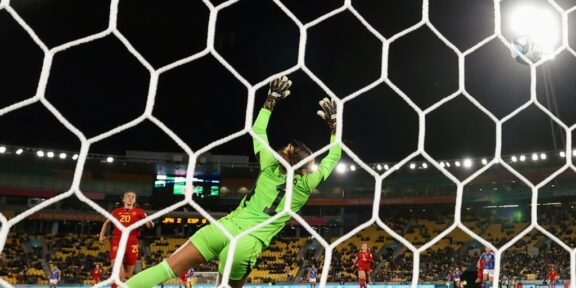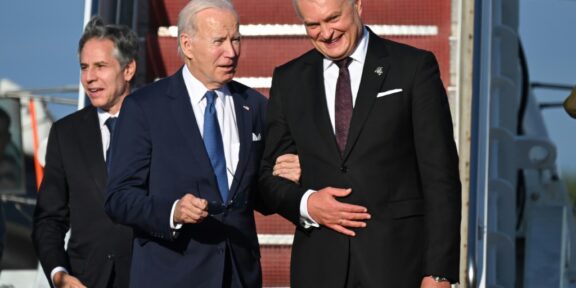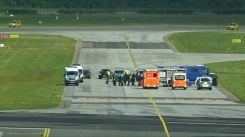
The remains of 30 victims of the Srebrenica genocide in Bosnia will be laid to rest Tuesday, as thousands commemorated the atrocity’s 28th anniversary against a backdrop of surging tension, with the landmark peace deal that ended the war under pressure.
Bosnian Serb forces captured the ill-fated eastern town — then a UN-protected enclave — on July 11, 1995 and in the following days summarily killed some 8,000 Muslim men and boys, in an act of genocide under international law.
The remains of most of the victims were later found in mass graves in eastern Bosnia, where the perpetrators moved them from original burial sites to cover up the crime.
Many of the 30 victims buried on Tuesday were identified in previous years, but the families chose to wait until more of their remains were recovered.
A political tug of war in recent weeks has seen some of the biggest cracks emerge in Bosnia since the end of the brutal 1992-1995 civil war with the signing of a US-brokered peace deal.
A day ahead of the ceremony, the top international envoy to Bosnia Christian Schmidt — tasked with overseeing the civilian aspects of the Dayton accords that ended the war — pledged to “ensure that legal steps are taken against all those who deny the genocide”.
The comment appeared to be a thinly disguised swipe at his chief rival in the country, Bosnian Serb President Milorad Dodik, who has repeatedly refused to call the atrocity a genocide.
Dodik and Schmidt are locked in an increasingly high-stakes showdown after the Bosnian Serb leader signed legislation last week that targets the authority of the envoy and the constitutional court in Bosnia’s Serb entity.
The moves have been widely panned by Western powers, with Washington accusing Dodik of flouting the Dayton agreement.
Dodik’s signing of the laws last week came just days after Schmidt tried to head off the controversial moves by passing an executive order that deems the legislation illegal and prevents their implementation.
The peace accords hammered out at a US airbase in Dayton, Ohio in 1995 followed a NATO-backed bombing campaign targeting Bosnian Serb positions that helped bring the country’s warring parties to the negotiating table.
The NATO intervention was in part triggered by the massacre in Srebrenica along with other vicious attacks targeting civilians by Bosnian Serb forces.
A joint prayer will also be held at a memorial cemetery on Tuesday, just outside Srebrenica, where the remains of the 30 victims will be buried among the thousands of white tombstones that blanket the valley in eastern Bosnia.









